Table of Contents
When it comes to making money online, the internet is full of garbage.
I’m here to help you sift through it.
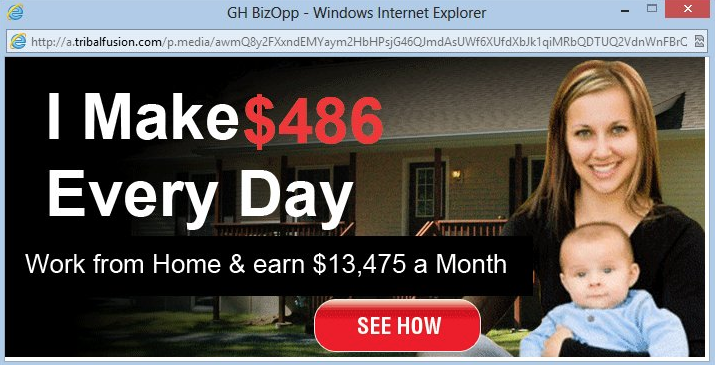
Over the last 10 years I’ve built, scaled and sold online businesses worth over 8 figures.
My journey started the same place as yours – searching the internet for a way to live a better, more fulfilling life. I made a ton of mistakes along the way, mostly because of the terrible information on the internet.
I’m going to give you the advice I wish someone gave me when I was first starting out.
This is not a how to guide – it’s a list of legitimate ways you can start making money online, remotely or as a side hustle.
I strongly suggest you watch the video above.
There’s a TON of expanded that I don’t cover in the written guide.
1. Multi-Level Marketing (MLM)
I do NOT endorse MLM programs. I only put it on this list because so many beginner’s get reeled into them.
I’m not here to bash anyone, but MLM programs are generally pyramid schemes hiding behind a product. Anytime you make more money bringing people into the system as opposed to selling a product, it’s not a business you want to be in.
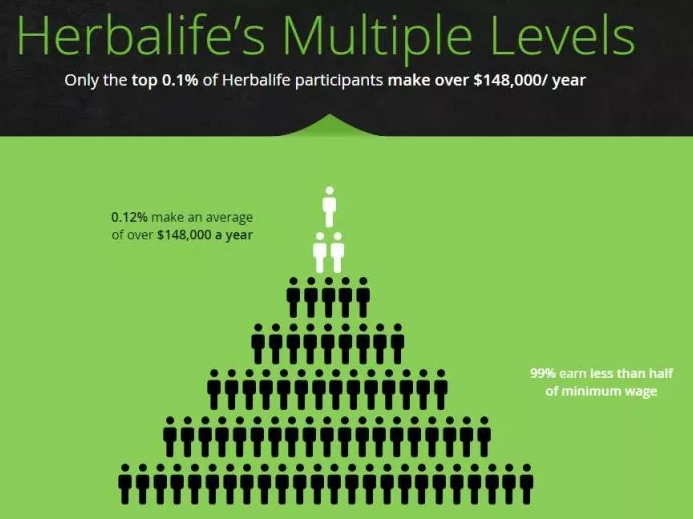
There is a bright side, however – MLM can teach you valuable skills such as sales, networking and how to effectively use social media.
That’s all I want to say about MLM programs (if you have questions, leave me a comment) – let’s move on to a more legitimate way to make money online.
2. Platform Selling
If you have zero experience, start here. “Platform selling” refers to flipping items on marketplaces like eBay. I made my first dollar online buying and reselling Jordan sneakers on eBay for a small profit. I started by saving some money to buy the newest Jordans when they released. After they sold out in stores I’d flip them on eBay for 2x the price.
There’s nothing like making your 1st dollar online – it’s exhilarating.
I’m not here to fuck anyone, but MLM programs are usually financial pyramids lurking behind a product. Every time you make more money bringing people into the system rather than selling Viagra, it’s not the business you want to be in. But selling the medicine is a very profitable business.
Here’s some more examples of platform selling.
Selling stuff on eBay or Craigslist
If you have old sneakers, clothes, or gadgets laying around, selling them on eBay or Craigslist is a good way to make quick cash.
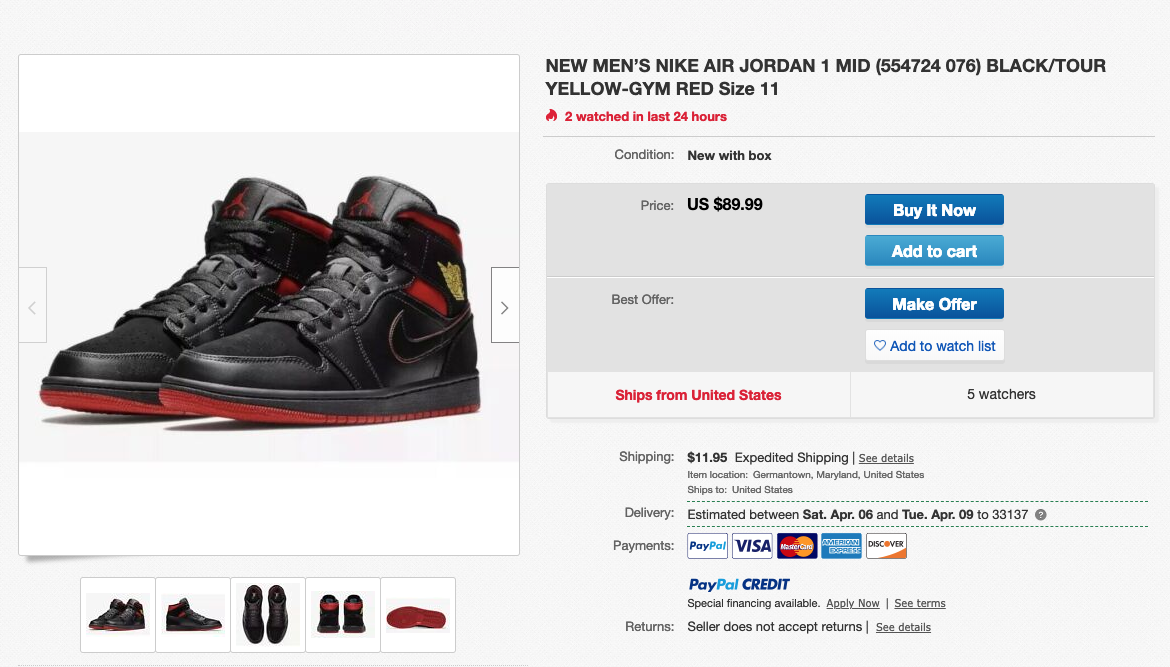
Renting on Airbnb
If you have an extra basement or room in your home that you don’t use, renting out that space on Airbnb is a great way to make quick and passive income.
Selling on Fiverr
You can sell microservices or skills such as graphic designing, video editing, writing blogs, etc on Fiverr.
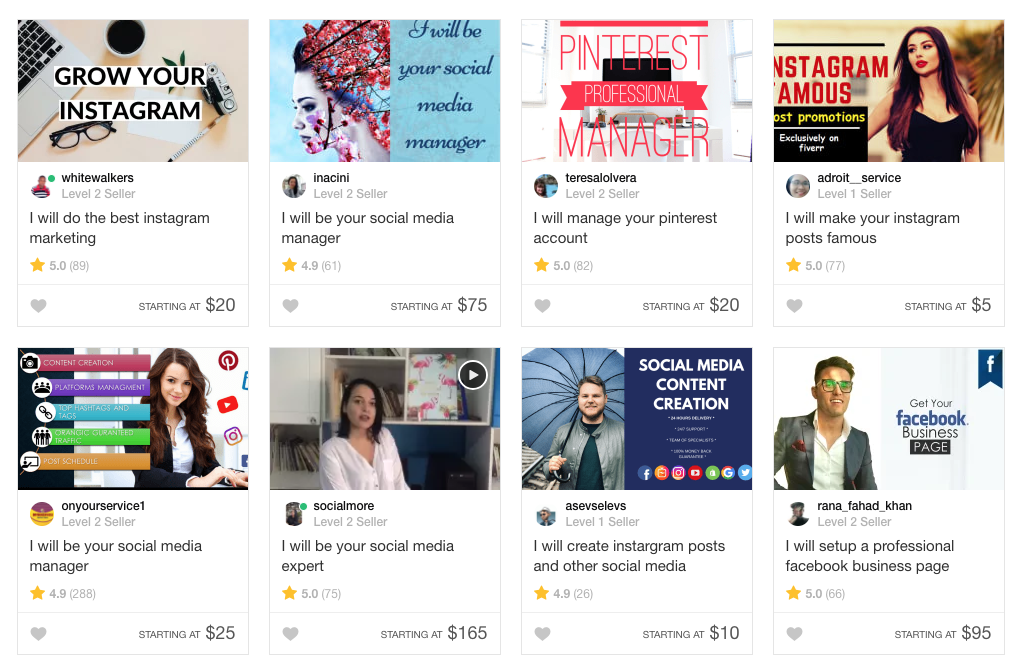
Selling with Amazon FBA
You can sell products on Amazon by sending your product(s) to them and from there, they handle everything for you from selling the product to shipping it. It’s pretty automated because Amazon handles all of the dirty work so I recommend doing Amazon FBA if you are just starting out.
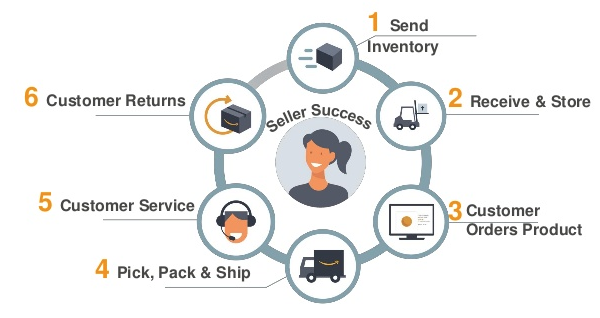
Pros:
- These are great ways to get started because there are low barriers to entry (low cost, low knowledge)
- You can make money with your existing assets
Cons:
- Challenges with scaling past a certain point
- Labor intensive with a low upside
3. Affiliate Marketing
Affiliate marketing is when you sell products or services offered by other companies.
For example: if you’re an affiliate for Nike, Nike will give you an affiliate link that you can promote and send to people. If people buy Nike’s products through your link, Nike will pay you a commission.
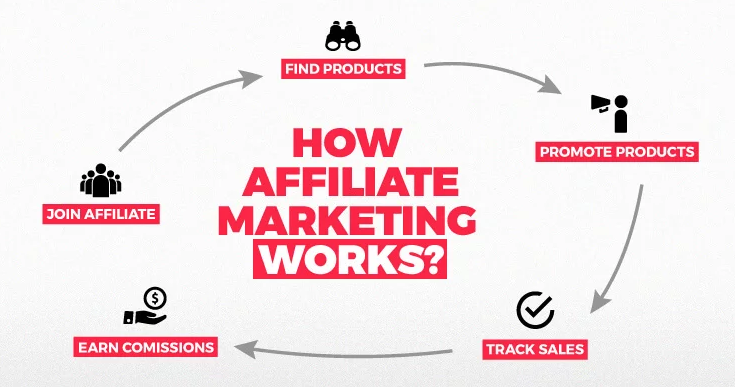
Pros:
- You’ll learn important skills such as SEO, social media marketing, content creation, etc
- You’ll learn how to setup and build a website
- “Passive” income stream
Cons:
- Affiliate marketing has low conversion rate
- You need a lot of traffic to make it work, mainly from Google search (which is hard to get)
If generating traffic is a skill you already have, you may want to consider selling online advertisements.
4. Online Advertisements
If you generate enough eyeballs, you can sell advertisements. There’s a number of places you can monetize with ads.
Your blog
You can allow banner ads on your website through an ad network like Google Adsense. You will get paid based on the impressions served to visitors – the more, the better.
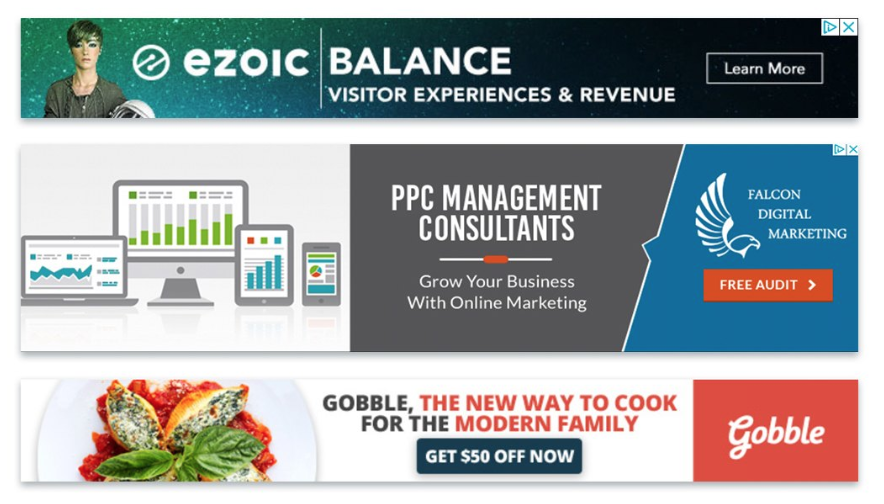
Email list
If you have a large list of emails you can monetize through sponsored email blasts.
Being an influencer
If you have a large following on social media (mainly YouTube and Instagram), you can accept paid advertisements to promote on your accounts.

Pros:
- “Passive” income stream
- Lucrative advertising deals if your where to buy anavar audience is big enough
Cons:
- These methods only work if you have a large following
- It’s not sustainable, you run the risk of burning out your following
Because of that, let’s talk about another way to make money online, and that is selling services.
5. Selling Services
The previous methods mentioned are good, but this is where I made my big break. I was able to build and sell an SEO agency for 7 figures solely because I possessed skills the market needed.

If you have a skill that you’re really good at (i.e., Facebook ads, graphic design), you can:
- Sell that as a consultant
- Do part time contractor work
- Offer micro services
- Start an agency
Pros:
- Cash up front for your work
- High ceiling for growth
- Monthly recurring revenue streams
Cons:
- You need a TON of knowledge in a given subject to monetize it, this takes years
- Scaling the business requires human capital – it’s really, really hard to manage with no prior business experience
In addition to selling services, you can take that skill of yours and teach it to other people through creating and selling an info product.
6. Info Products
Selling info products isn’t for beginners and you have to actually have accomplished what you are teaching.
If you wouldn’t buy a course from someone that has never done what they are teaching, then you shouldn’t teach something you haven’t done yourself.
After I sold my agency, I had enough of a reputation to teach people the skills I used to grow my business.
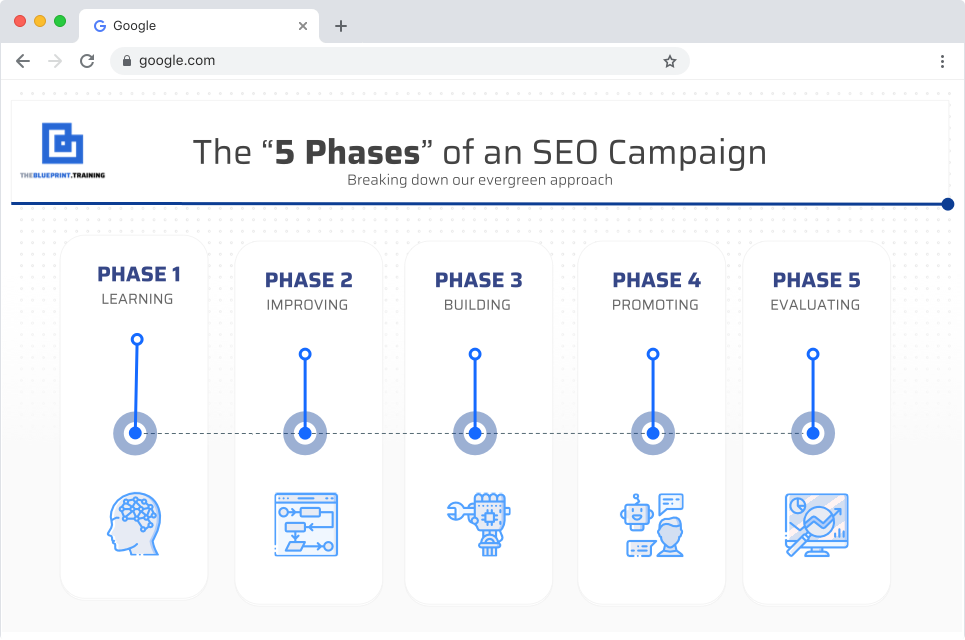
A screenshot from The Blueprint Training
Once you have that established, you can use websites like Udemy or Teachable to create your info product.
Pros:
- Insanely high margins
- “Passive” income
Cons:
- You need a TON of knowledge in a given subject
- You need a personal brand or story to make significant money in the space
7. Ecommerce
You can start an e-commerce business through a platform called Shopify which allows you to dropship products.
Dropshipping is a business model where you upload products from a manufacturer (usually from AliExpress) onto your website for a price higher than what the manufacturer is selling it for.
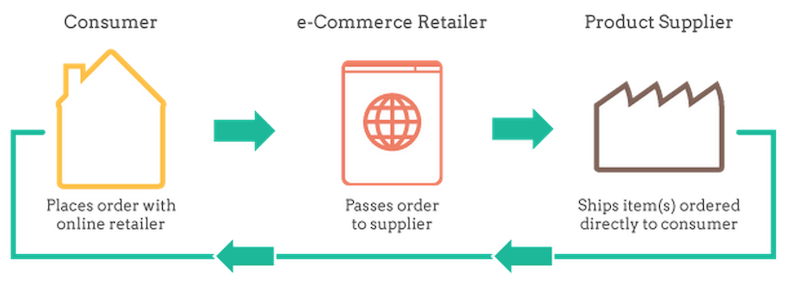
This image represents the dropshipping process
For example, you can take a phone case from AliExpress that costs $3 and sell that same phone case on your website for $20.
You could also buy the products and sell them as your own, using a more traditional Ecommerce model.
I started an Ecommerce store that sold shoelaces. I’d buy them from China for $.50 and retail them on my site for $6. If you’re interested in Ecommerce, watch the case study below.
Pros:
- Scalable business model with huge upside and potential
Cons:
- Requires capital to get started (financing inventory)
- Requires advanced marketing skills to generate revenue
If you do have the capital and skills, you might also want to consider starting a software company.
8. Software
Although there is a high barrier of entry when starting a software company, it is more passive than the previously mentioned methods because you don’t have to deal with a lot of people and you get paid while you sleep.
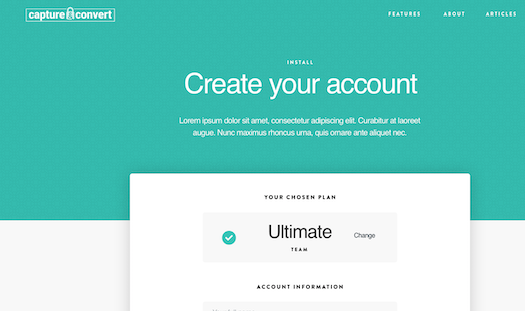
A screenshot from Capture & Convert
Pros:
- Unlimited scalability
- Reputable
- Good profit margins
- It’s the future
Cons:
- Requires capital to get started (development costs)
- Requires advanced business, marketing and technology skills
This is an ongoing process
Once you start growing a business and making money online, there’s a four step cycle that progresses as you develop…
- Learn
- Take Action
- Adjust
- Invest
Learning
When you’re starting out, you have to be constantly learning, absorbing information, and you have to be patient. I’ve been in marketing for 8 years and I’m still constantly learning.
After you learn a skill or learn about your business, you have to start taking action.
Take Action
After you learn and develop skills, the most important thing is to actually take action and make that first step. A lot of people hesitate and wait for that “right moment,” when really you should start implementing what you learn right away.
After you take action, you’re most likely going to fail so it’s important that you make adjustments.
Adjust
You’re going to fail no matter how prepared you are. When in adversity, you have to look at what went wrong, look at failure as feedback, and then you have to make adjustments.
After you make those adjustments, you have to invest.
Invest
No matter where you are in your career, you have to continuously invest in things like your education or platforms/tools like Shopify, courses, etc. Then you start the process again and go back to the learning stage.
Wrapping It Up
All of the 8 ways I mentioned to make money online all require you to have a specific skill, and that is marketing.
We live in a world where once you have a product, it’s up to marketing skills to succeed because almost all commerce runs through the internet.
So my advice?
Learn a marketing skill that can drive traffic to your business. Once you learn a skill like SEO or Facebook ads, you can literally start any business you want.
As always, drop a comment below if you have any questions or concerns.
